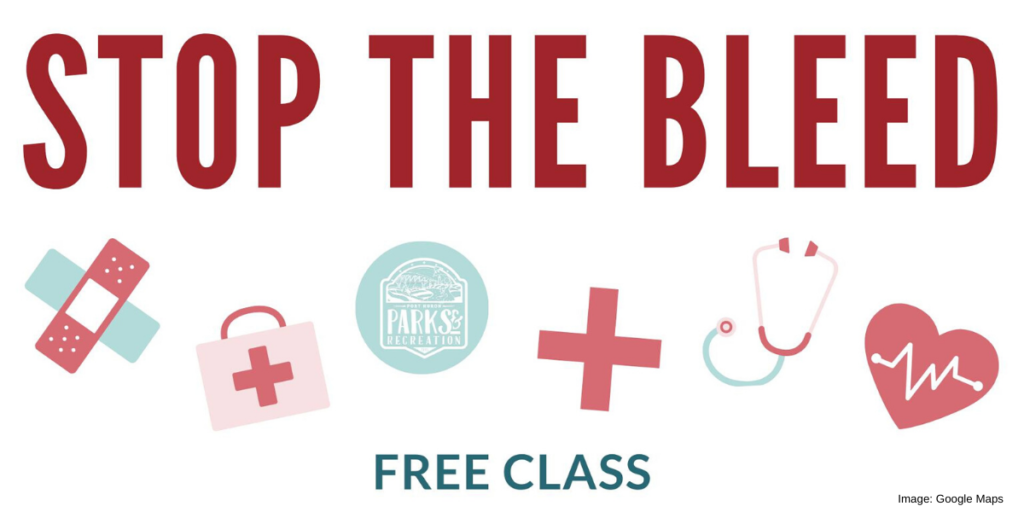If someone is in danger, do you have the skills to save a life? It could be someone with a household injury, in a car accident, or even a larger, hostile situation. By learning a few, simple methods and having the right toolkit, you can go from bystander to lifesaver. The national average responding time for first-responders to be on the scene of an emergency is eight to ten minutes.
To equip local residents to be prepared, Tri-Hospital Paramedics Rhonda & Bill Adams share the Stop The Bleed curriculum in a monthly class and point out that someone on the scene of an accident can make a huge impact on the victim’s recovery.
Some tips you can start with? To effectively stop bleeding, applying pressure is key. Rhonda Adams says that everyone can create an effective Stop The Bleed toolkit which includes gloves, an ace bandage, rolled gauze, an Israeli dressing, and a tourniquet.
Free Stop The Bleed classes are held monthly with Port Huron Parks & Recreation at Palmer Park. You can also watch Stop The Bleed demonstrations and see how to build your own affordable, lifesaving toolkit at ebw.tv. (Video safe for all ages.)


